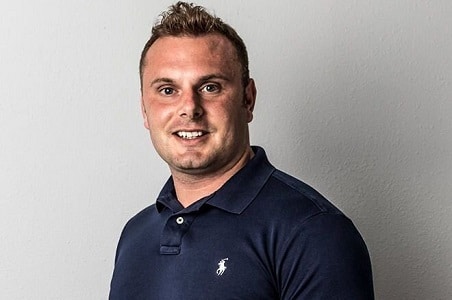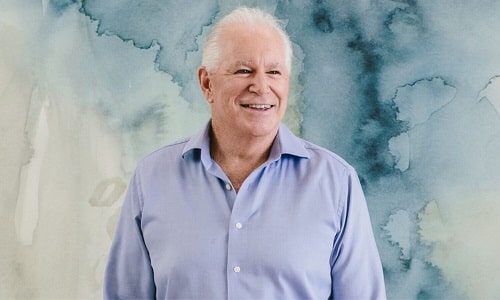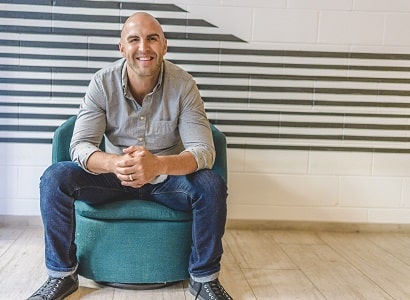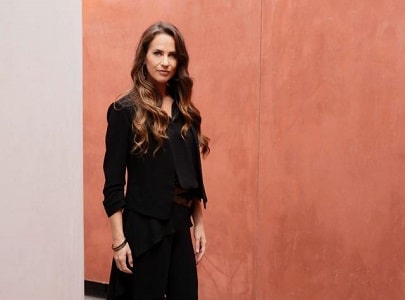In this article, I’ve handpicked the 10 best performance coaches and will share everything you need to know about performance coaching.
1 out of every 6 entrepreneurs is turning to a performance coach to propel their business to the next level in a fraction of the time.
But should you hire a performance coach?
Read on to find out.

Key Takeaways
- Performance coaches help their clients to identify, set, and achieve goals.
- Hiring a performance coach is the secret of every savvy, successful entrepreneur.
- Performance coaching shares similarities with life coaching, but goes further by tracking performance and adjusting the program accordingly.
10 Best Performance Coaches
Lisa Grum

Lisa Grum is a Performance, Mindset & Business Coach who specializes in business growth for coaches, experts, and leaders. She is a digital business strategist, growth mindset expert, creator, travel lover, self-care expert, and optimist. Lisa helps her clients unlock their belief systems to grow beyond their limits and develop a competitive edge. She offers resources, tools, and support to help her clients achieve their goals.
Oriana Guevára

Oriana Guevára is an experienced Personal Performance & Executive Coach, Certified Relationship Coach, Professional Speaker, and Author. She has 15 years of Human Resources experience, including roles in recruiting, diversity, equity, and inclusion programs, employee relations, mediations, conflict resolution, and executive coaching1. Oriana specializes in helping successful executives and entrepreneurs reconnect to a powerful and inspiring life vision and value system. She guides her clients towards self-mastery, high-value relationships, and lifestyle design.
Brian Dunn

Brian Dunn is a professional coach who specializes in helping individuals and teams achieve their goals. He focuses on aligning team members and maintaining that alignment throughout projects. Brian assists his clients in attaining clarity, confidence, and the ability to live the life they intended. He also emphasizes the importance of understanding each individual’s unique strengths, beliefs, challenges, aspirations, and work styles in a workspace.
Cara Gibson

Cara Gibson is the founder of Gibson Business Performance. She spent a decade in competitive global advertising agencies across New York, London and Toronto working with some of the most influential and profitable brands. After building Gibson Business Performance LLC in 2018 and creating time and financial freedom in full-time entrepreneurship, Cara then began to use her experiences and education to help others navigate their own.
Elliot Roe

Elliot Roe is a leading expert in Mindset Optimization for High Performers and the world’s #1 Mindset Coach for poker players. He helps individuals and teams unlock their maximum potential and achieve their goals. His clients include high-performers in their field looking to breakthrough plateaus, achieve rapid growth, and unlock deeper levels of happiness and fulfilment. Elliot’s unique approach involves understanding each individual’s unique strengths, beliefs, challenges, aspirations, and work styles1.
Dr. Michael DiMarco

Dr. Michael DiMarco is a transformational coach who focuses on health, wealth, and happiness. He believes in an inside-out perspective for life transformation, emphasizing the importance of mind, body, and finances. Dr. DiMarco helps individuals look within themselves to solve their problems and transform their lives. His approach involves guiding his clients to change their life from an outside-in perspective to an inside-out perspective.
Mimi Peak

Mimi Peak is a seasoned coach specializing in life satisfaction, balance, and overall well-being. Holding degrees in Psychology from UCLA and a J.D. in Law from Loyola Law School, she combines her educational background with a rigorous, evidence-based approach honed during her years as a civil litigation attorney. Mimi is committed to applying proven skill development across various life facets, including business, relationships, and personal growth. Her methodical approach ensures she fully understands and personally applies any new learning before imparting it to others.
Paul Blackburn

Paul Blackburn is a performance coach and a personal growth expert who specializes in building unshakeable resilience. He provides a fail-proof formula for resilience through his four-part course. Paul believes that the most resilient people are those who learn and grow from their failures. His approach involves helping individuals adapt well in the face of adversity, threats, or significant sources of stress. He equips them with skills to not only cope with life’s difficulties but also bounce back from them to reach a high level of performance.
Daniel Diaz

Daniel Diaz is a life and performance coach who helps people perform at their highest level by mastering their mindset and habits. He is the Founder and CEO of PEAK LIFE NOW, a mission-driven company that delivers entrepreneurs and team leaders to their highest level of performance through a heart-centered transformation of mindset and habits. His signature program includes Peak Life Now. Daniel’s energy is infectious, and he has a depth of knowledge and personal experience in peak performance, mindset, and habit reform.
Lindsay Briner

Lindsay Briner is an Executive Coach & Leadership Development Trainer with over 10 years of academic research and thousands of hours of 1:1 client work. She is a research scientist offering a novel synthesis of best practices from cognitive neuroscience, transpersonal psychology, neurobiology of peak performance, sports psychology, and meditation. Lindsay has developed a unique method called Stabilized Flow, which helps individuals achieve persistent inner peace, generate peak performance, and sustain their well-being.
#1 What Is Performance Coaching?
Performance coaching is a system designed to guide you toward your next level of achievement through:
- Establishing goals
- Creating a roadmap
- Implementing habit change
- Accountability
- Tracking progress & adjusting as necessary
Those in performance coach jobs help their clients to identify, set, and achieve goals. They often work with top executives who want to improve their leadership skills and get to the top of their industry.
Many leaders hire high performance coaches to help their team to get the most out of their job and boost the performance of their company.
Performance coaching is also very popular among entrepreneurs who want to grow a successful business or take their business to the next level.

Life Coaching Vs Performance Coaching
Both life coaches and performance coaches will walk you through a similar process, however, a performance coach goes further. Usually, they include ways to track your performance to see if it is producing the desired results, and then adjust the program accordingly.
Coaching for performance may go as far as to track factors that affect your body and mind, including
- Sleep quality
- Diet
- Resting heart rate
- Activity levels
- Stress management (such as yoga or meditation).
#2 Performance Coach for Entrepreneurs
Hiring a coach for performance is the secret of every savvy, successful entrepreneur.
Running a business pulls you in many different directions, making it hard to focus on what really matters.
Most entrepreneurs are also bursting with creativity and ideas, and it can be tempting to spread yourself too thin.
A performance coach helps you stay focused on the things that will grow your business.
They will also accompany your personal and professional development, giving you an edge over the competition.
The bottom line: professional coaching for entrepreneurs is about working smarter, not harder, making your business more effective, and earning more money while you do it.

#3 Personal Performance Coach
Performance coaches can also help people reach their full potential in their personal life.
#4 Benefits of Hiring A Performance Coach
Is engaging with a performance coach really a necessity? Absolutely!
In a world constantly striving for higher achievements, high performance coaching isn’t just another developmental tool, it’s a pivotal element in refining individual and organizational success.
A performance coach can help teach their clients leadership strategies and problem solving skills by sharing knowledge and providing constructive feedback. They provide bespoke strategies, addressing unique developmental needs and helping people to see beyond their perspectives to recognize their true potential and how it aligns with organizational objectives.
Whether it’s aiding in
- improving time management,
- enhancing communication skills,
- or resolving complex problems, a coach’s insight is invaluable.
This manner of coaching employees:
- to see themselves more clearly,
- to manage stress effectively,
- and to understand how their roles contribute to the larger organizational goals,
fostering a sense of purpose and increased job satisfaction.
This enhanced engagement and feeling of value not only elevate the quality of work but also fortify employee retention.
In essence, performance coaching is not merely a luxury or a remedy—it’s an investment in sustainable success, relevance, and continual improvement for everyone within an organization.
#5 What Is a High-Performance Coach?
High-Performance Coaching Definition
High-performance coach, Brendon Burchard, defines high-performance coaching as: “succeeding beyond standard norms, consistently over the long term while maintaining wellbeing and positive relationships”.
High-performance coaching focuses on changing your mindset so you can get out of your own way and achieve your highest potential in every area of your life.
The aim of high-performance coaching is to reduce interference from what Timothy W. Gallwey calls “Self 1”.
Self 1 is the voice of your inner critic, the one that repeats negative opinions of you and gives you that feeling of not being enough.
This voice distracts you from the task at hand, leading to poor performance. A high-performance coach will keep you accountable for taking consistent action toward your goals.
#6 Performance Coaching Styles
The 4 main coaching styles that coaches usually adopt are:
- Democratic
- Autocratic
- Laissez-faire
- Holistic
A democratic coaching process is participative. This means the client is proactive in setting goals and identifying the steps to achieve them.
An autocratic approach to coaching is usually necessary when the coach has more experience with solving problems than the client.
Although it is a less common method, it can be an effective way of training the client to make decisions on their own. It also can also help you gain greater confidence and clarity.
As the name suggests, laissez-faire coaching is a hands-off approach that leaves the responsibility almost completely in your hands.
Although it is perhaps not appropriate for use in every situation, occasionally taking a back seat in the coaching process may empower you to make your own decisions, manage your time, and improve your confidence.
Holistic coaching takes into account the interconnectedness of all areas of your life and how they affect your performance.
This means they will help you to achieve balance in your:
- Relationships
- Health
- Work or career
- Home environment
- Nutrition
- And more.
When choosing a performance coach, remember that the coaching relationship is key to success.
This means you must choose a coach who you like, trust, and feel comfortable to work with.

#7 Performance Coaching Tools
One of the most commonly used tools throughout the coaching industry is the GROW model, which stands for:
- Goal
- Reality
- Options
- Will
Most performance coaches incorporate this model into their work with clients as it forms a clear structure for the coaching process.
The first step is to identify your goals. A performance coach will help you do that by asking you powerful questions to help you get clear about what you want.
Next, taking stock of your reality — or current situation — will show you the gap between where you are now and where you want to be.
The third step is to consider your options. This is the stage where you come up with new ideas, try new things, develop new skills and look for the best way to achieve your goals.
Finally, you choose one option that motivates you the most — the one you have the will to carry out.
This process maximizes your motivation and focus, thus enhancing your performance.
Frequently Asked Questions
How can performance coaching help me in my professional development?
Performance coaching can pinpoint and develop your skills and strengths, aiding in your professional growth and enhancing leadership and management abilities.
Can performance coaches improve employee performance?
Yes, performance coaches specialize in optimizing employee performance by identifying and addressing individual needs and improving motivation and engagement levels.
Do professional athletes utilize performance coaches?
Absolutely, many professional athletes engage with performance coaches to achieve peak performance and maintain high standards throughout their careers.
Can a performance coach aid in achieving optimal experience and managing stress?
Yes, coaches employ holistic approaches to help clients manage stress and achieve an optimal balance between their professional life and day-to-day life.
Can performance coaching improve time management skills?
Definitely, coaching programs often encompass strategies to enhance time management, allowing for more success and balanced living.
How does performance coaching differ from life coaching?
While both aim for personal and professional development, performance coaching primarily focuses on achieving high performance and specific goals, whereas life coaching often addresses broader aspects of a person’s life.
Can small business owners benefit from hiring a performance coach?
Yes, many small business owners find that coaching enhances their leadership, time management, and organizational skills, leading to improved business operations.
How does performance coaching support leadership development?
Performance coaches work with senior leaders and executives to enhance leadership skills, enabling them to drive organizational success and encourage employees effectively.
What is the importance of coaching sessions in performance improvement?
Regular coaching sessions allow for consistent progress monitoring and timely constructive feedback, ensuring continuous improvement in work performance.
How can performance coaching contribute to career development?
Performance coaches help individuals identify career goals, break free from limiting beliefs and bad habits, and develop skills essential for career advancement.
Is performance coaching beneficial for high performers?
Even high performers can benefit from coaching to further refine their skills, overcome new challenges, and continue their professional growth.
How does a coaching program assist in personal development?
Through a well-structured coaching program, individuals gain increased self-awareness, develop meaningful relationships, and improve various aspects of their lives.
Can performance coaching improve organizational needs and human resources?
Yes, it plays a crucial role in addressing organizational needs by improving individual employees’ skills, thereby enhancing overall human resources quality.
Can performance coaching assist in achieving peak life and more success?
Absolutely, by focusing on core principles and key factors of human potential, coaching enables individuals to live a peak life and attain more success.
What kind of results can I expect from a good performance coach?
A good performance coach will help you to identify and achieve your goals, improve your performance in various life areas, and experience increased satisfaction and joy.
What are the duties of a performance coach?
A successful performance coach guides individuals to improve their skills, achieve their goals, and enhance overall performance by developing personalized strategies, providing support, feedback, and accountability.
Who is the best performance coach?
It’s subjective, as the best performance coach for one person may not be the same for another. It’s crucial to find a coach who understands your needs, has proven experience, and is certified in coaching practices.
What do I need to be a performance coach?
To be a performance coach, one typically needs certification from an accredited coaching program, knowledge in psychology or human behavior, effective communication skills, and experience in helping people in specific areas of their life.
What are the 7 roles of a coach?
The 7 roles of a coach are:
Guide
Mentor
Teacher
Motivator
Consultant
Counselor
Supporter
What is the difference between performance management and performance coaching?
Performance management is a systematic process focusing on improving organizational, team, and individual performance, often led by managers, whereas performance coaching is a collaborative, ongoing process between the coach and the individual focused on developing the individual’s skills, knowledge, and abilities to improve performance.
Remember, choosing the right performance coach is vital to experiencing these benefits, so take the time to research and select a coach who aligns with your needs and goals.
#8 Best Performance Coaches To Follow
Here are 3 of the best performance coaches you can follow.
- Brendan Burchard — the author of “High Performance Habits” is the number one performance coach in the world. He has worked with top performers from every sector and trained millions of coaching clients through his online courses. He shares his top personal development strategies through his YouTube channel and podcast.
- Ben Newman — is a performance coach, international speaker, and bestselling author who has worked with Fortune 500 companies and professional athletes at the top of their game.
- Marshall Goldsmith — is a renowned business and leadership coach and author of the bestseller “What Got You Here Won’t Get You There”. In his book, he shows you how behavior, not technical skills, is what separates the great from the good.
#9 How to Find a Performance Coach Near Me
A quick internet search will help you find performance coaches in your local area.
Take some time to do your research, and don’t be afraid to interview potential candidates before making your decision.
Look for things like years of experience, skills, and commitment to ongoing professional development.
#10 How to Become a Performance Coach
Perhaps after reading this far, you think you might like to become a performance coach?
If so, you’ve made a great choice, as the global demand for this type of career coaching is growing.
Although coaching is an unregulated industry — meaning anyone can call themselves a “coach” — the best way to develop your coaching skills is to become a certified performance coach courtesy of the International Coaching Federation.
This will help your future clients place their trust in you and set your business up for success.
#11 Performance Coach Certification
If you’re thinking of becoming a performance coach, then you probably want to know which is the best certification for you.
Luckily for you, I have already compiled the 6 best life coach certifications online.
#12 Performance Coach Salary
As with all types of coaching, your earning potential depends on you.
Some of the top performance coaches in the industry earn thousands of dollars per hour.
Prices vary depending a coach’s experience. However, most coaches start out with lower prices (between $150 and $400 USD per hour) and raise them over the years as they gain more experience.
There are also other ways to leverage your expertise and create passive income from sales, books, and other products you create.
#13 Questions To Ask A Performance Coach
When considering engaging with a performance coach, you likely have several questions about how they can assist you. Below are 15 questions that can provide crucial insights into a coach’s methods, experience, and compatibility with your goals.
- What is your coaching philosophy and methodology?
- Can you provide references or testimonials from previous clients?
- How do you tailor your coaching to meet individual needs and goals?
- What experience do you have in my specific industry or field?
- How will we measure my progress and success?
- What is the structure of your coaching sessions, and how frequent are they?
- Do you provide support between sessions?
- How do you handle confidentiality and privacy concerns?
- How do you address and overcome performance barriers and challenges?
- What are your areas of expertise, and what issues are outside your scope?
- How can your coaching improve my productivity and efficiency?
- Do you offer advice, assessments or tools to identify my strengths and areas for improvement?
- What is your availability, and how flexible are you with scheduling sessions?
- What are your fees, and what is included in the cost?
- How long does it typically take for clients to see measurable results?
Related Posts
31 Types Of Coaching – A Complete List
Online Life Coach – The Complete Guide
Best Executive Leadership Coaching Online
